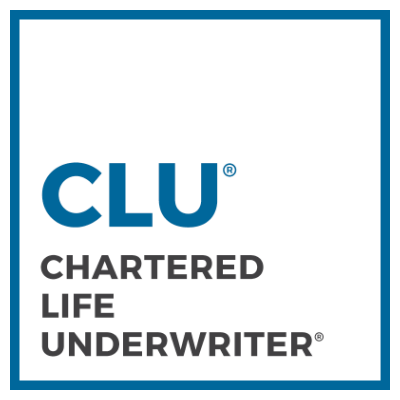Personal Life Insurance
About
When your financial plan suggests your family needs life insurance protection, run a quick calculation using the link below. If you have questions, please reach out to us. Having the right amount is easily obtainable with a properly structured program.
Term life insurance
Term life insurance provides protection for a specific period of time (the term). This is often 10, 20 or 30 years. Term life insurance makes sense when you need protection for a specific amount of time–for instance, until your kids graduate from college or your mortgage is paid off.
Term life insurance typically offers the most amount of coverage for the lowest initial premium. This makes this type of life insurance policy a good choice for those on a tighter budget.
Permanent life insurance
Permanent life insurance provides lifelong protection for as long as you pay the premiums. It also accumulates cash value on a tax-deferred basis, which you can tap into to buy a home, supplement your retirement income, cover an emergency expense and more.
Because of these additional benefits, initial premiums are higher than what you’d pay for a term life insurance policy with the same amount of coverage.
You Might Want a Mix
Depending on your circumstances and financial goals, sometimes a combination of term and permanent insurance is the answer.
Looking for Life Insurance?
Contact Us Today or Apply (Term Only) Directly on Line
If you do not wish to meet with an agent, I understand. You can easily apply for insurance on-line. In many cases, medical underwriting will not be necessary. Or, if you need more comprehensive analysis, arrange an introductory call with Peter to review your options.
Life Insurance Facts and Stats
Life Insurance statistics according to BankRate.com.
What Is a Chartered Life Underwriter (CLU)?
Chartered life underwriter, or CLU, is a financial services certification for financial advisors who specialize in life insurance within the context of estate planning. Although many advisors have experience with estate planning, CLUs go through rigorous training to earn this designation. The education process involves learning about risk management, insurance, annuities and more.
CLUs are insurance-focused financial advisors who have gained a high level of expertise in life insurance and estate planning. These professionals can help you navigate the complexities of life insurance, including how much insurance you need and what annuities you should consider. They can also work with small businesses and help them build succession plans, organize their tax and legals needs and more.
Some CLUs work on behalf of insurance agencies to sell you policies. As such, they are well-versed in what policies are available and what would be a good fit for your situation. They are usually able to answer any questions you have about buying life insurance, including coverage needs, whether you need term life or whole life insurance and which insurer to go with.
Life insurance rates depend heavily on your medical history and your family’s. But CLUs frequently work to offer clients the best rates possible. For those who have a high-risk or checkered past, you can count on a CLU to scour the market for your top matches.
To become a CLU, participants must complete coursework and exams in life insurance and estate planning. Participating advisors are also required to have worked full-time in the industry for at least three of the last five years and follow strict ethical standards. Once completed, advisors become insurance experts with the ability to help clients make decisions regarding estate planning, wills and trusts.
The American College is the exclusive institution that graduates financial advisors to become chartered life underwriters. The certification has actually been around since the 1920s.




